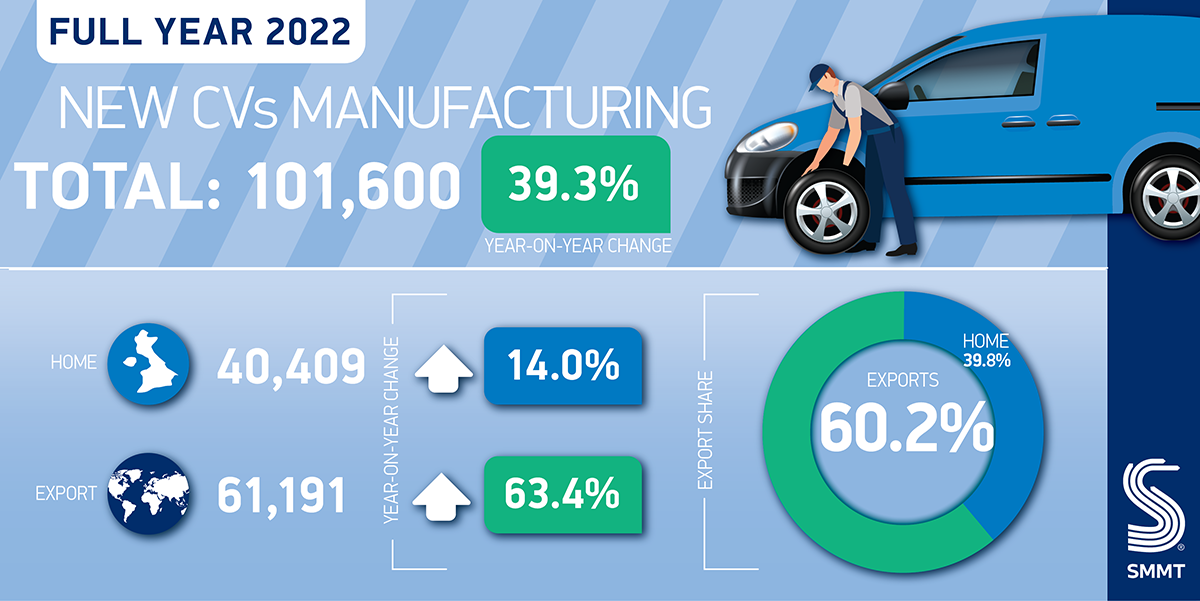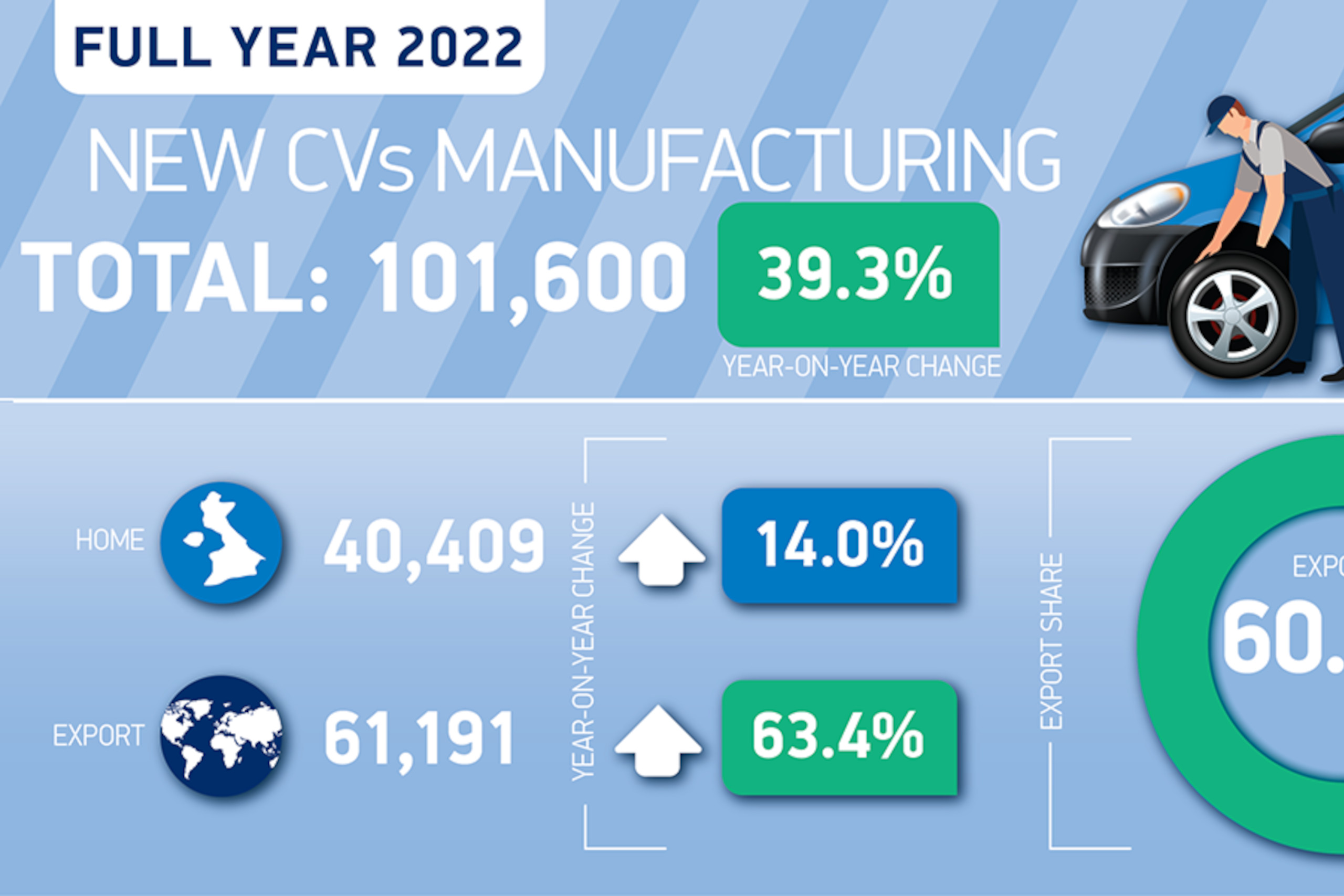British commercial vehicle production has recorded its best annual performance since 2012.
Production grew year-on-year by 39.3%, to 101,600 units in 2022. This number includes vans, trucks, taxis, buses and coaches, and is a very positive result for the CV manufacturing sector.
The result was driven by 11 months of consecutive growth, with only December reporting a decline in output. This consistent improvement also bodes well for the future, with forecasters expecting a strong 2023.
The domestic market rose by 14% year-on-year to 40,409 units, a good response to the pandemic years, and a good sign that demand remains strong.
Most of the demand has come from overseas markets, with 63.4% of all produced vehicles destined for export. The vast majority (92.8%) of exports were sold to Europe.

Mike Hawes, SMMT Chief Executive, said, “British CV manufacturing’s best annual performance in a decade is testament to the determination and agility of the sector, which continued to meet strong demand despite extremely challenging operating conditions. However, long-term success is contingent on the sector’s ability to remain competitive in the global race to net zero. Support to bring down soaring energy costs, encourage investment in zero emission technologies, and equip our talented workforce with the right skills to deliver these vehicles, will be essential in keeping the nation and economy on the move.”
2023 is predicted to be an even better year, with CV numbers expected to exceed 160,000. Much of this is due to new models being released, and a greater push towards electric van production.
Where vans are concerned, 2022 has not been a good year for production, with supply chain issues persisting. Van Ninja expects to see a larger range of availability, and more vehicles in stock in 2023. This gives Van Ninja the ability to deliver new vans to customers in a much shorter time frame, ensuring they have their new vehicles when they need them.


